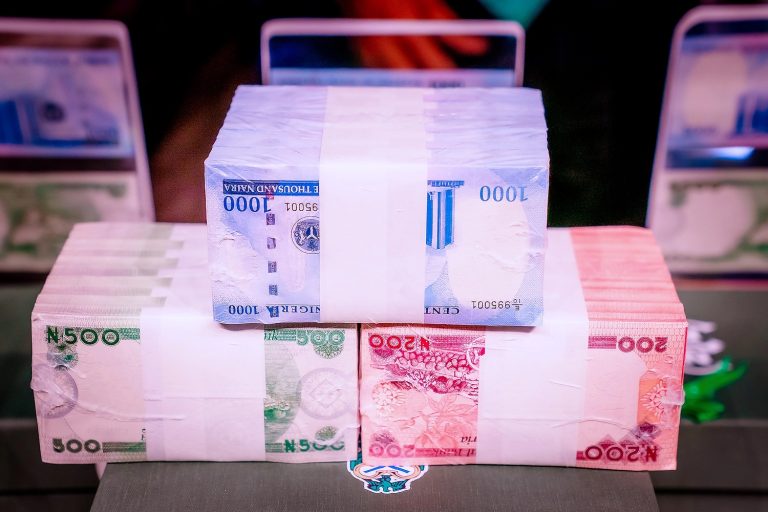
The announcement of the new naira notes by the Central Bank of Nigeria to replace existing ones in 2022 was not the first time that the apex bank would introduce new currency notes or redesign them. From the military administrations to the democratic administrations that saw the need for the policy, Nigerians have had the opportunity to feel the negative and positive consequences of it. Flipping through the historical records, our analyst discovered that introducing new notes has never had such a negative impact on people’s and businesses’ socioeconomic activities as redesigning some of the existing notes had on Nigerian people and businesses.
According to historical records, in April 1984, when President Muhammadu Buhari was the Head of State, the colours of all banknotes in circulation were changed, with the exception of the 50 Kobo banknote, in order to combat currency trafficking that was prevalent at the time. As noted earlier, in 2022, the same policy was introduced under his leadership, with the deadline slated for January 31, 2023. The deadline, like the events of 1984, is unrealistic given the country’s cash economy as opposed to a cashless economy. To douse the uncertainties that surround the policy, the apex bank came up with the Frequently Asked Questions and Answers on the Naira Redesign [PDF]. This and other media campaigns from the bank and other players in the banking sector were less effective during the early days of the stated deadline. On several occasions and in various fora, the governor of the Central Bank of Nigeria, Godwin Emefiele, repeatedly said there was no room for extension of the deadline. Having seen the possible impacts of the CBN’s position on people and the economy in particular, the members of the National Assembly rose through their unanimous resolution and urged the Central Bank of Nigeria (CBN) to extend the deadline for the return of the old currency from January 31, 2023, to June 30, 2023.
Throughout this period, the meaning of “deadline” was constantly constructed and negotiated among the state and non-state actors. As a result, it was difficult for all actors to agree on a single definition for “deadline,” while citizens who rely heavily on cash transactions experienced a variety of difficulties. Regardless of gender or income level, purchasing necessities and paying for medical expenses were difficult. From Kano to Aba and Ilorin to Sokoto, Nigerians cannot engage in their daily business activities. Like how the Nigerian military and other security forces developed and executed different special security missions to ensure the security of lives and property in some parts of the northern and southern regions, Nigerians were made to play and dance with pythons despite having money in banks.
Register for Tekedia Mini-MBA edition 18 (Sep 15 – Dec 6, 2025) today for early bird discounts. Do annual for access to Blucera.com.
Tekedia AI in Business Masterclass opens registrations.
Join Tekedia Capital Syndicate and co-invest in great global startups.
Register for Tekedia AI Lab: From Technical Design to Deployment.
State and non-state actors, throughout the period of negotiating and constructing meanings for the deadline in relation to the CBN’s proposed benefits, used Nigerians, according to our analyst, as a training dataset to teach models capable of establishing different theatres of suffering, as stated earlier. Our analyst notes that this is the first time one can easily detect how the government through the apex bank applies supervised machine learning, testing the possibility of politically-motivated ‘artificial intelligence’ in monetary policy in Nigeria. The use of machine learning in public policy is not new, especially in the global north. However, in our analyst’s view, machine learning driven by political motives a few days before general elections is much more dangerous to the collective well-being of the people the political leaders say they are protecting.
The CBN and some political actors primarily used machine learning as a material for forming sedimented meaning for having the new notes as solutions to vote-buying and ransom payments for kidnappers and terrorists. In this context, hegemonic meanings were created for the identified solutions without considering the possible sufferings that people would experience. Our analyst notes that the machine is supposed to be used to aggregate and coordinate people towards adopting appropriate processes for an easy swap of the old currencies with the new ones.
Instead, supervised machine learning as a materiality in various contexts divided the country into different antagonistic camps during the period of negotiating the deadline and constructing meanings for the essence of the policy. Our analyst identified cabals in the presidency versus APC’s presidential candidate team, APC’s presidential candidate team versus opposition political parties [PDP and LP], citizens versus cabals in the presidency, citizens versus APC’s presidential candidate team, citizens versus opposition political parties, citizens versus commercial banks and citizens versus operators of point-of-sale outlets camps. Before the Supreme Court’s judgment, which restrained the Federal Government from suspending the acceptance of the old Naira notes on the February 10, 2023 deadline, actors in these camps ensured that Nigerians had different kinds of suffering.


